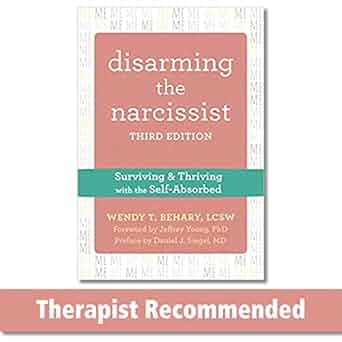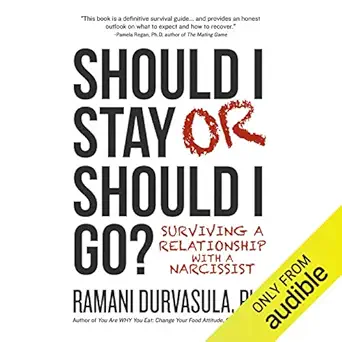Alright, Lovers, let’s get into it. The first question we need to ask is this: CAN a narcissist actually love? And the short answer? Yes… but not in the way you’d hope. Their version of love is often shallow, self-serving, and, let’s be real, more about what they’re getting out of it than true connection. Now—we’ve all probably dealt with a manipulator or two in our lives (we’ve all got that one ex we’d rather forget, right?). But here’s the thing: not every manipulative jerk is a true narcissist. So, what exactly is a narcissist? Let’s break it down…
It gets kind of long so click for here table of contents:
- What Is a Narcissist?
- Narcissism in Women and Men
- The Narcissist’s Perspective
- Narcissists in Relationships: Common Patterns
- Navigating Relationships with Narcissists
- Can a Narcissist Change?
- Challenges in Changing a Narcissist
- Your Role in the Relationship
- Should You Stay?
- Self Reflection
- Resources for Healing and Support
- Final Thoughts
What Is a Narcissist?
A narcissist is like the diva of every drama—always center stage, demanding applause, and completely oblivious to anyone else’s script. They soak up attention like a sponge, brush off your feelings like lint, and have an uncanny ability to twist every situation into their personal spotlight. Exhausting? Absolutely. And when these traits crank up to maximum overdrive, you might be dealing with Narcissistic Personality Disorder (NPD). People with NPD are next-level; they have an inflated sense of self-importance, crave constant admiration and validation, lack empathy and dismiss others’ emotions, manipulate and exploit relationships to get what they want, and are hypersensitive to criticism, often reacting with anger or defensiveness. Being in a relationship with a narcissist can leave you feeling frustrated, confused, and questioning your reality.
Narcissism in Women Vs Men
When it comes to narcissism, men and women play the game differently. Some men are the loud and proud showboats, flexing their achievements, dominating conversations, and demanding center stage like it’s their birthright. Some women, on the other hand, are the subtle strategists, wielding guilt trips, passive-aggressiveness, and emotional manipulation with finesse. Men might flaunt their power and status, while women lean into their looks or weave compelling emotional tales. Same endgame, just a different playbook.

The Narcissist’s Perspective
Narcissistic behavior often grows from shaky foundations laid in childhood. Many narcissists build these traits as survival tools to mask feelings of inadequacy or rejection, often fueled by inconsistent or neglectful parenting. Beneath their over-the-top confidence and relentless need for praise lies a fragile self-esteem, paper-thin and easily punctured by criticism, leaving them hooked on external validation to feel whole.
Narcissists in Relationships: Common Patterns
Dealing with a narcissist often involves recurring behaviors that can leave their partner emotionally drained:
Lack of Empathy: Narcissists struggle to understand or care about others’ feelings, often invalidating or ignoring their partner’s emotions.
Gaslighting: They distort reality to make you question your perceptions and sanity.
Push-Pull Dynamics: One day, they’re loving and attentive; the next, they’re distant or critical, keeping you off-balance and seeking their approval.
Projection: They often accuse you of the very behaviors they exhibit, like calling you selfish or manipulative.
Constant Need for Admiration: If you’re not giving them enough attention, they may retaliate with criticism, withdrawal, or seeking praise elsewhere.

Navigating Relationships with Narcissists
If you’re in a relationship with a narcissist, protecting your emotional well-being is essential. Here’s how:
Educate Yourself: Understanding narcissism can help you recognize patterns and avoid internalizing their behavior.
Set Boundaries: Be clear and consistent about what you will and won’t tolerate. For example, calmly state, “I won’t tolerate being yelled at. Let’s talk when you’re calm.”
Don’t Engage in Power Struggles: Narcissists excel at turning arguments into ways to assert control. Stay calm and avoid defending yourself unnecessarily.
Seek Support: Talk to friends, family, or a therapist who can help you process your emotions and develop coping strategies.
Know When to Leave: If the relationship is toxic and taking a toll on your mental health, it may be time to step away.
Can a Narcissist Change?
Yes, but change requires:
Acknowledging Their Behavior: Narcissists must recognize that their actions hurt others. This is often the hardest step due to their resistance to criticism.
Genuine Willingness to Change: Even if they understand their behavior, they must be motivated to improve—often through personal loss or hitting a low point.
Therapy: Professional help, particularly with a therapist experienced in personality disorders, is essential for long-term change.
Without these factors, change is unlikely. Even with them, progress is slow and requires significant effort.
Challenges in Changing a Narcissist
Defensiveness: Narcissists often perceive feedback as a threat to their fragile self-esteem and respond with anger, denial, or manipulation.
Lack of Empathy: Their difficulty in understanding others’ emotions can hinder their ability to truly care about the impact of their behavior.
Deep-Seated Traits: NPD is a personality disorder, which means it is deeply ingrained and shaped by years of patterns, defenses, and coping mechanisms. Change is typically slow and requires significant effort.
Externalizing Blame: Narcissists often blame others for their problems, which can make them resistant to accepting responsibility for their behavior.

Your Role in the Relationship
Dealing with a narcissist is all about drawing your lines in the sand and refusing to budge—because trust me, they’ll test those limits every chance they get. Spell out exactly what you will and won’t accept, like calmly saying, “I won’t tolerate being yelled at. Let’s talk when you’re calm.” Don’t fall into the trap of enabling their antics or letting guilt-trips throw you off course. Stick to non-accusatory “I” statements to keep things productive and avoid adding fuel to their fire.
Protecting your emotional health is crucial since gaslighting and invalidation can take a toll. Seek support from friends, family, or a therapist to stay grounded. While you can’t force them to change, framing therapy as something that benefits them—like boosting confidence—might encourage them to consider it. Focus on your well-being while navigating the relationship dynamics.

Should You Stay?
Deciding whether to stay in a relationship with a narcissist depends on several factors:
Your Emotional Well-Being: If the relationship is consistently causing you harm, it may not be sustainable.
Their Willingness to Change: If they are unwilling to address their behavior, the relationship is unlikely to improve.
Your Support System: Having external support (friends, family, or a therapist) is crucial for navigating a relationship with a narcissist.
Your Own Boundaries: Ask yourself: Are you willing to accept the relationship as it is if change doesn’t happen?

Questions for Self Reflection
- Do I feel emotionally safe and valued in this relationship?
- Am I constantly seeking their approval or walking on eggshells to avoid conflict?
- Are my needs and feelings often dismissed or ignored?
- Do I feel manipulated, controlled, or blamed for things that aren’t my fault?
- Am I sacrificing my own happiness and well-being to keep the peace?
- What are you getting out of this relationship, and is it meeting your emotional needs?
- Do you feel respected and valued as an equal partner?
- Are you losing your sense of self trying to manage their behaviors or emotions?
- Have you considered what the relationship would look like if they never changed?
Resources
Books:
“Should I Stay or Should I Go?“ by Dr. Ramani Durvasula (a guide for navigating relationships with narcissists).
“The Covert Passive-Aggressive Narcissist” by Debbie Mirza (focuses on subtle narcissistic behaviors).
“Why Is It Always About You?” by Sandy Hotchkiss: A practical guide to understanding narcissism and protecting yourself.
“Disarming the Narcissist” by Wendy T. Behary: Offers strategies for dealing with narcissists in relationships.
Therapy:
Seek individual counseling to explore your feelings, set boundaries, and determine the best course for your well-being.
Support Groups:
Look for online or in-person support groups for partners of people with NPD, such as those offered through NAMI.
Final Thoughts
Reflecting on all this, it’s clear that navigating relationships with narcissists requires a delicate balance of self-awareness, boundaries, and emotional resilience. Recognizing the patterns—whether it’s manipulation, gaslighting, or the constant push-pull dynamic—is the first step in regaining your footing. Understanding their behavior isn’t about excusing it but about protecting yourself and setting the tone for healthier interactions.
It’s important to remember that you can’t “fix” a narcissist; they have to choose that path themselves. Your role isn’t to be their therapist or punching bag but to prioritize your own well-being. Setting clear boundaries, fostering open but firm communication, and leaning on your support system are essential tools. And if the relationship feels too draining or harmful, it’s okay to step away.
Ultimately, this journey is about empowerment—recognizing that their behavior reflects their own insecurities, not your worth. Whether you choose to engage, distance, or move on entirely, the key is to center yourself and ensure your needs, values, and mental health come first. You deserve peace and authenticity in your relationships.
Books Mentioned:
.




